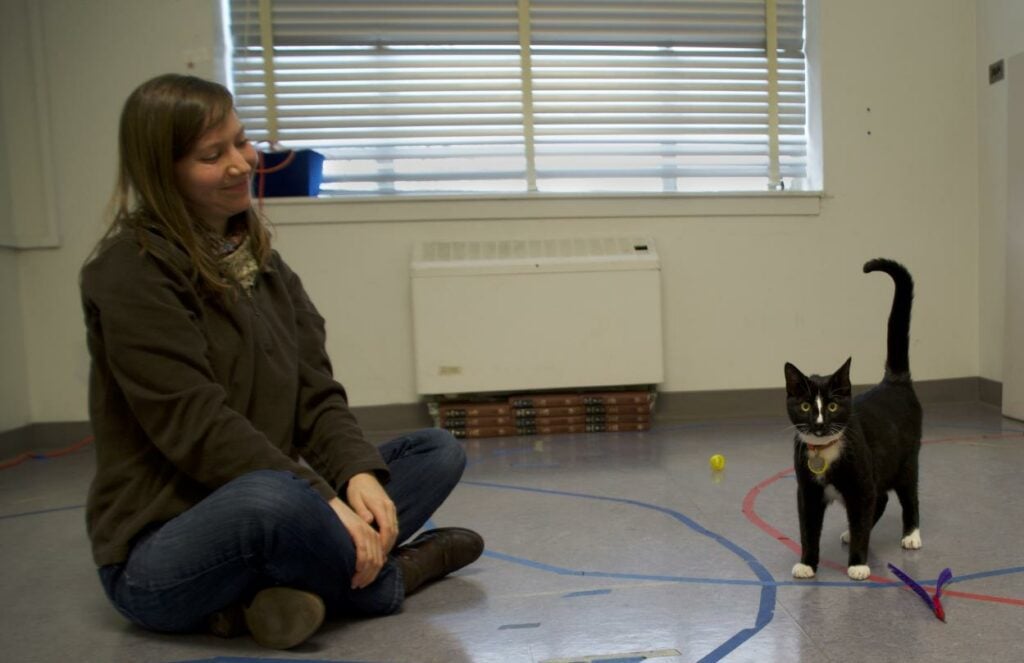While cats and dogs have been rivals on several occasions, only a handful of tests and studies are done with cats to learning about them truly. But how smart are our feline friends?
Cats are actually intelligent. They are quite independent, and they can understand a whole lot of things. They even have excellent short-term and long-term memories. Their IQs can be compared to that of a 2 to 3-year-old child.
Who is Carl the Cat?
Kristyn Vitale, a post-doctorate from Oregon State University, found a black scrawny kitten on the side of the road one day and decided to rescue him. The funny thing is, Vitale was also studying the ins and outs of the feline mind. What they didn’t know was how that kitten was meant to beat the odds. He was named Carl.
Vitale would have two bowls over-turned in one experiment while her assistant held Carl at the other end of the room. As soon as Vitale would call his name and point to a bowl, he would approach the bowl she would be pointing at. Toddlers easily pass this test, and we know how well children learn through interaction and application. While most other animals fail the test, dogs pass with flying colors, which is why the scientific community invested more in learning about the canine mind. (Source: Science Magazine)
Are All Cats Like Carl?
Now here’s where cats like Carl come in. We wouldn’t expect cats to perform well during these tests. While dogs, like cats, lived in enclosed spaces with us – they descend from highly anti-social ancestors, and humans back then did not spend a lot of time molding and training them to be our companions.
Carl is not the only cat like this, but he is part of a small percentage. This is exactly why scientists disregarded the supposed intelligence cats possessed. Now, there are several labs studying cat social cognition all over the world. (Source: Science Magazine)
Are There Studies the Feature Both Cats and Dogs?
By 2004, several studies have been published about the social cognition of canines. Ádám Miklósi, a cognitive ethologist from the Eötvös Loránd University in Budapest, was one of the front runners of canine research. Most researchers assumed that ages of domestication had corrupted dogs, but that is not true.
Researchers learned that dogs could identify human emotion and understand bits and pieces of human speech. And these skills are what teach dogs to become trusted and loyal companions. (Source: Science Magazine)
Miklósi then conducted a study where he compares how cats and dogs communicate with humans. The pointing test Vitale did with Carl was used within the homes of pet owners, and one evident thing is – some cats performed as well as dogs. Several cats dropped out of the study because they stopped paying attention or just ignored the commands. (Source: National Library of Medicine)
In the end, no one continued the study, including Miklósi himself. It’s been a decade, and there were no new studies on the matter. (Source: Science Magazine)
Are Cats Smart?
Vitale is still working on her study with Carl and two other cats – Lyla and Moody. But, while she does see the challenges, she remains optimistic.
Cats are now where dogs were a couple of decades ago. I hope researchers give them a chance to show what they can do.
Kristyn Vitale
(Source: Science Magazine)
